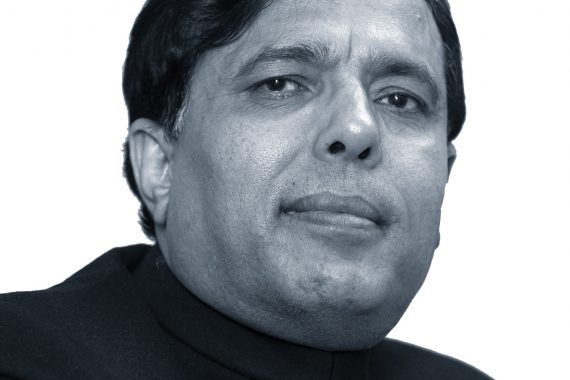I voted Brexit for the NHS – now show us the money

Let me confess. I voted for Brexit, on a single issue – the promise of £350 million a week for the NHS made by Brexiteers led by Boris Johnson. The now foreign secretary stated in an article for the Daily Telegraph: ‘Once we have settled our accounts, we will take back control of roughly £350m per week. It would be a fine thing, as many of us have pointed out, if a lot of that money went on the NHS.’
NHS England chief Simon Stevens has now articulated the views of many like me, using an image of the notorious Vote Leave battle bus, saying: ‘The NHS wasn’t on the ballot paper but it was on the Battle Bus. Vote Leave for a better funded health service – £350m a week.
‘Rather than criticising these clear Brexit funding commitments to NHS patients – promises entered into by cabinet ministers and by MPs – the public wants to see them honoured.’
Historically, the service has enjoyed rises of around 4% to cover the cost of the ageing population and new drugs. There is a £30bn gap to fill and we should be increasing the UK’s health spending by at least £10.3bn to match that of other leading European economies.
The health and social care system is a mess. Net expenditure on social care has dropped in real terms from £8.1bn in 2005/06 to £6.3bn in 2014/15, a drop of more than 20%. The Department of Health’s budget will increase by just over £4 billion in real terms between 2015/16 and 2020/21. This is not enough to maintain standards of NHS care, meet rising demand from patients and deliver the transformation in services outlined in Simon Steven’s Five Year Forward View. The pressures on the NHS will peak in 2018/19 and 2019/20, when there is almost no planned growth in real-terms funding.
If Simon Steven’s request is not heeded by the Chancellor, the intense pressures on the NHS and social care services will continue to grow. Already, two-thirds of NHS trusts (65%) and NHS foundation trusts (66%) reported deficits in 2015/16, up from 44% of NHS trusts and 51% of NHS foundation trusts in the previous financial year. The number of CCGs reporting cumulative deficits was 32 in 2015/16, up from 19 in both 2014/15 and 2013/14.
This massive funding shortfall means hospital authorities have no choice but cutting bed numbers and already a third of A&Es are set to close to cope with rising hospital deficits. Vulnerable elderly and disabled people will pay the price for a lack of new investment in social care, according to the Nuffield Trust. The government is asking GP practices to provide more services, including many involving the transfer of hospital care into the community, without the resources required to successfully deliver them. Primary care is imploding faster than people realise and patients are already bearing the brunt of the problem.
A combined financial and staffing crisis could cause ongoing chaos for years and ultimately kill off the NHS for good. It’s impossible to see how the NHS will get through the year 2018/19, when spending per person will fall. Something will have to give, whether it’s ballooning waiting lists, record deficits, or having to refuse patients new drugs.
I echo the statement of BMA chair, Dr Chaand Nagpaul: ‘The promise of extra funding for the NHS was a key issue at the ballot box during the Brexit referendum, and people rightly expect that promise to be honoured.’
‘With the budget only weeks away, bold action to deliver on this pledge, as proposed by Simon Stevens, is urgently needed and has the backing of the BMA. This is vital in order to address the current crisis in our health service, protect and improve patient care and put the NHS on a sustainable footing for the future.’
We have been squeezing the lemon for ‘efficiency savings’ for years. But it is getting to the stage where there is nothing left to squeeze.
Dr Kailash Chand is a retired GP from Tameside and is honorary vice-president of the BMA
Pulse October survey
Take our July 2025 survey to potentially win £1.000 worth of tokens











